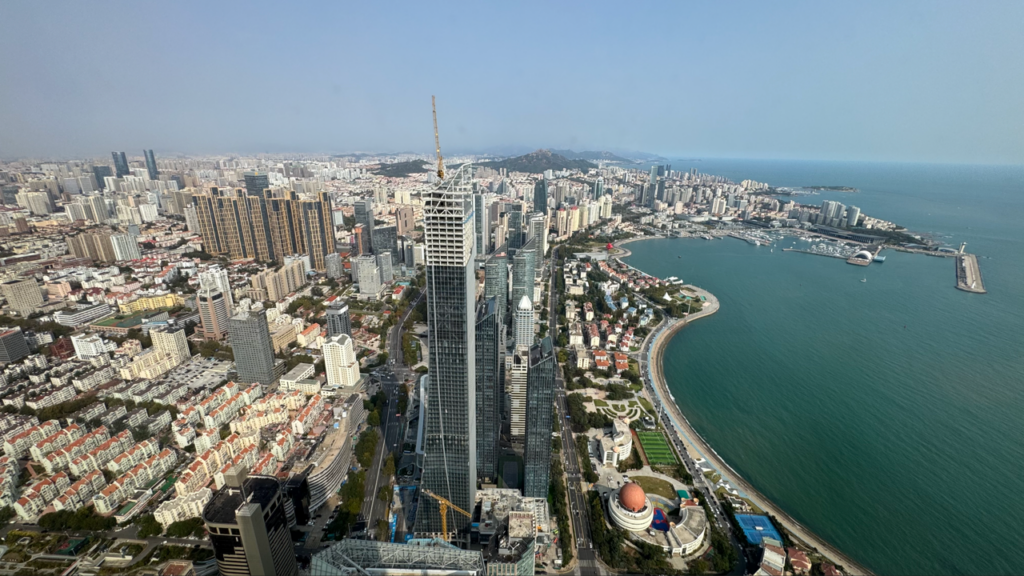青岛 Qingdao – General information
Qingdao’s history bears many elements of German and Japanese occupation and is documented in museums such as the Qingdao Mountain Battery Site Museum 青岛山炮台遗址展览or the Jiaoji Railway Museum located in Qingdao Station 胶济铁路博物馆.
Qingdao is a major seaport and naval base and classified as a Large-Port Metropolis. It is home to electronic multinationals such as Haier and Hisense and to China’s second largest brewery, the Tsingtao brewery – a legacy of German occupation https://en.wikipedia.org/wiki/Tsingtao_Brewery. A German Eco-Park is located in Qingdao http://www.sgep-qd.de/index/index and provides information on ongoing bilateral activities.
Qingdao is also one of the world’s top 50 cities for global scientific research as tracked by the Nature Index. It is home to several notable universities, including the Ocean University of China, China University of Petroleum, Shandong University of Science and Technology (Qingdao branch), Qingdao University of Science and Technology, Qingdao University of Technology, and Qingdao Agricultural University. The Chinese Academy of Sciences operates two institutes in Qingdao:
- The Center for Ocean Megascience http://www.coms.ac.cn/home/ , and
- Qingdao Institute of Bioenergy and bioprocess technology (QIBEBT) http://english.qibebt.cas.cn
learn more
Qingdao is a major seaport and naval base and classified as a Large-Port Metropolis. It is home to electronic multinationals such as Haier and Hisense and to China’s second largest brewery, the Tsingtao brewery – a legacy of German occupation https://en.wikipedia.org/wiki/Tsingtao_Brewery. A German Eco-Park is located in Qingdao http://www.sgep-qd.de/index/index and provides information on ongoing bilateral activities.
Qingdao is also one of the world’s top 50 cities for global scientific research as tracked by the Nature Index. It is home to several notable universities, including the Ocean University of China, China University of Petroleum, Shandong University of Science and Technology (Qingdao branch), Qingdao University of Science and Technology, Qingdao University of Technology, and Qingdao Agricultural University. The Chinese Academy of Sciences operates two institutes in Qingdao:
- The Center for Ocean Megascience http://www.coms.ac.cn/home/ , and
- Qingdao Institute of Bioenergy and bioprocess technology (QIBEBT) http://english.qibebt.cas.cn


